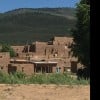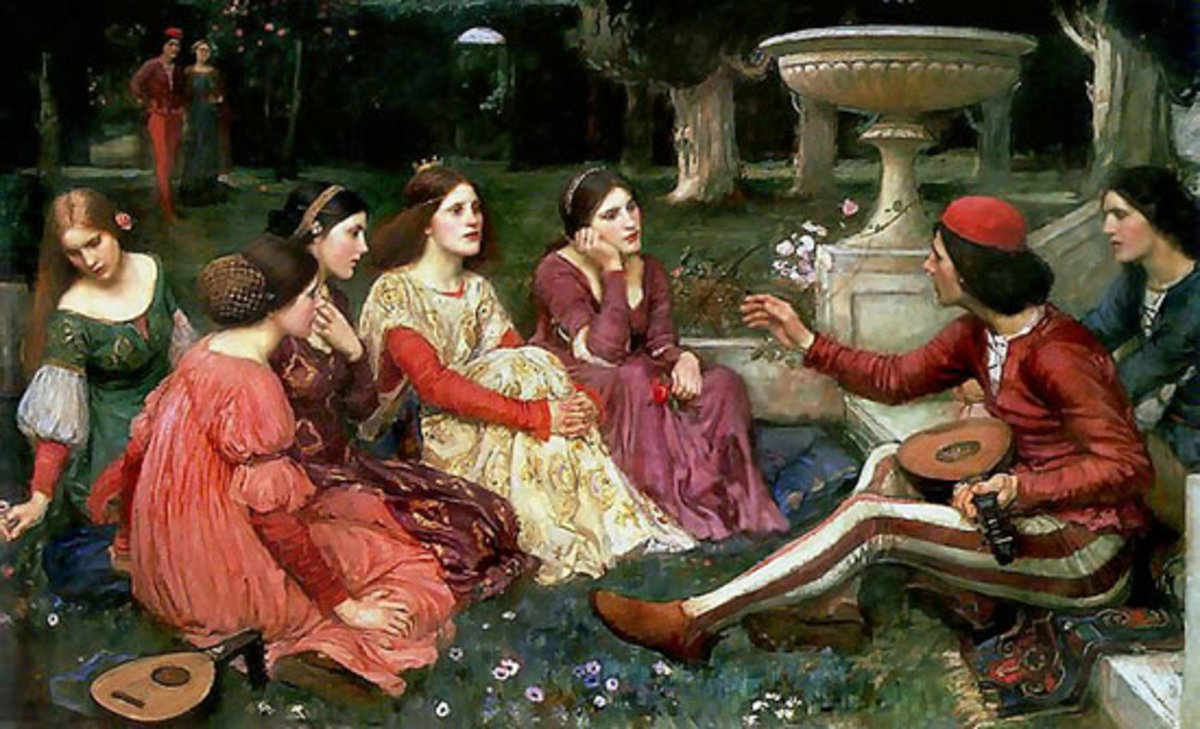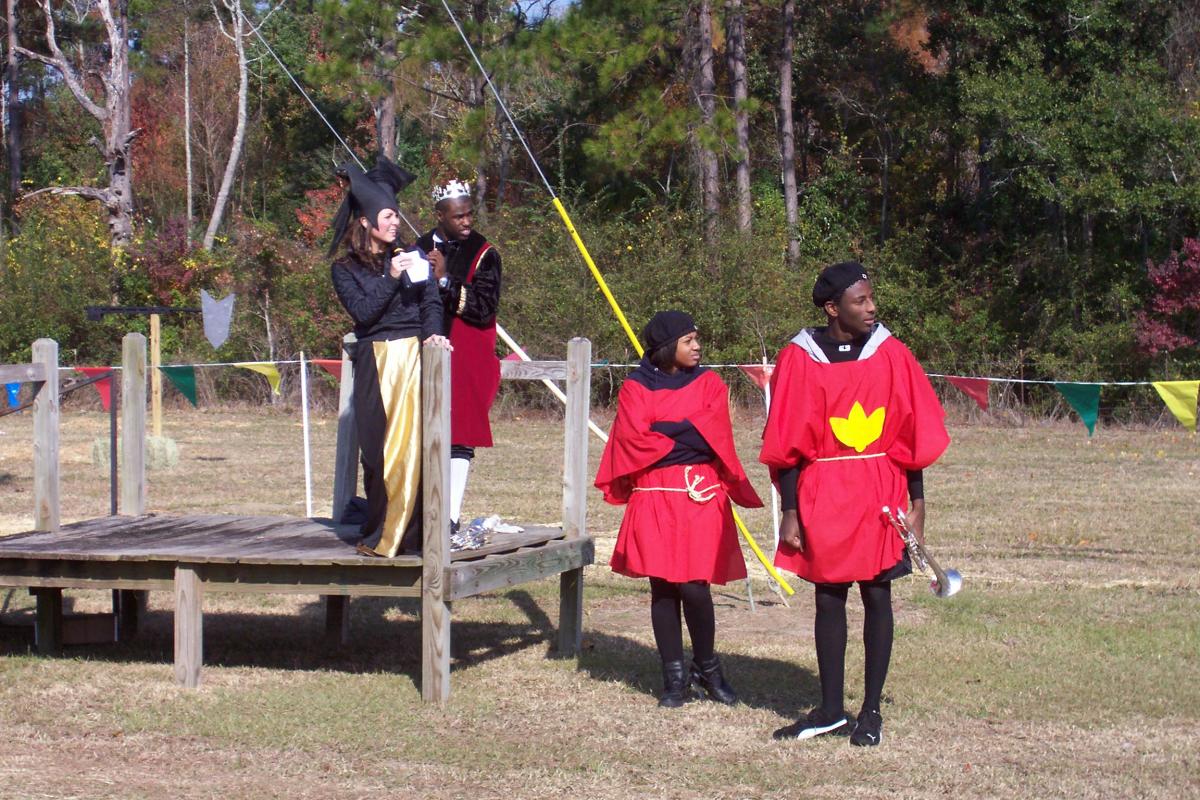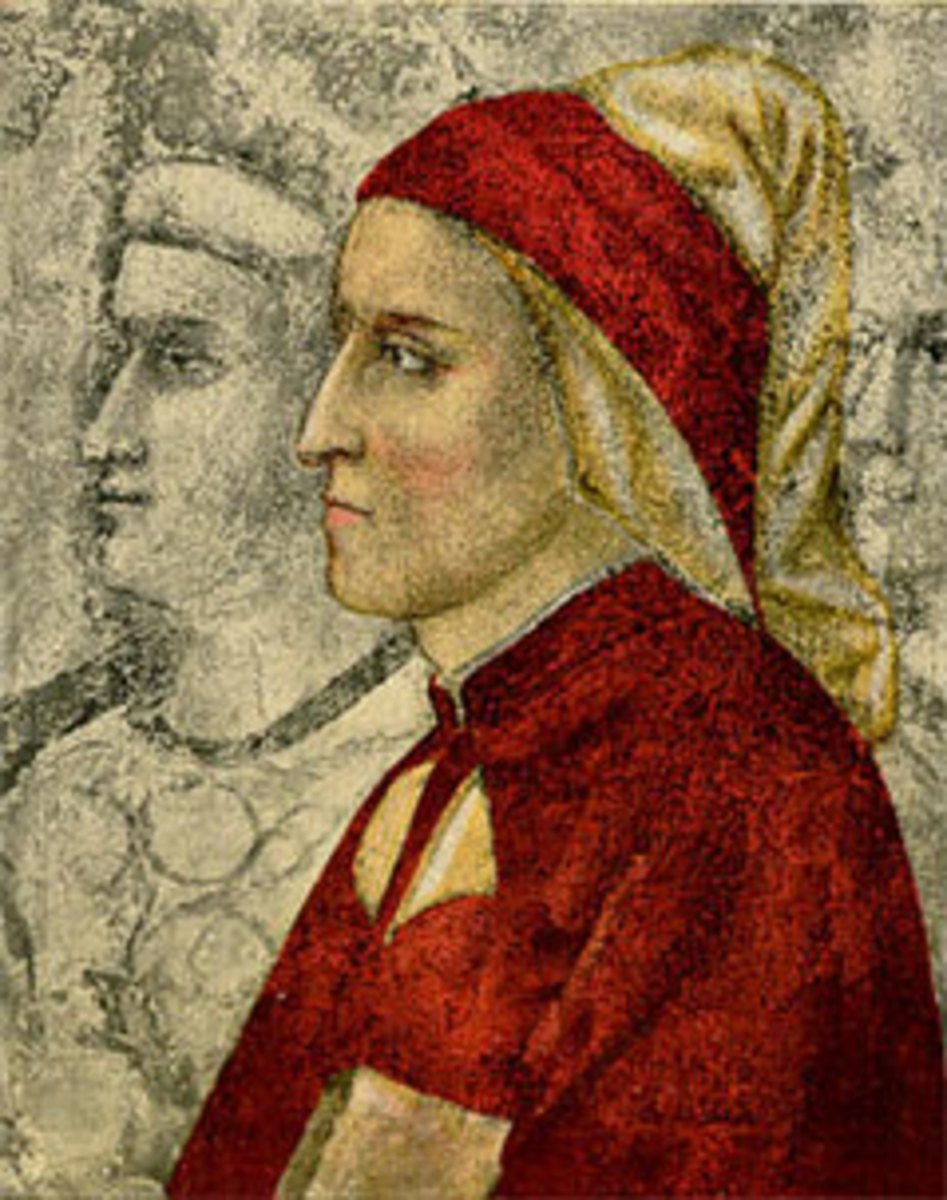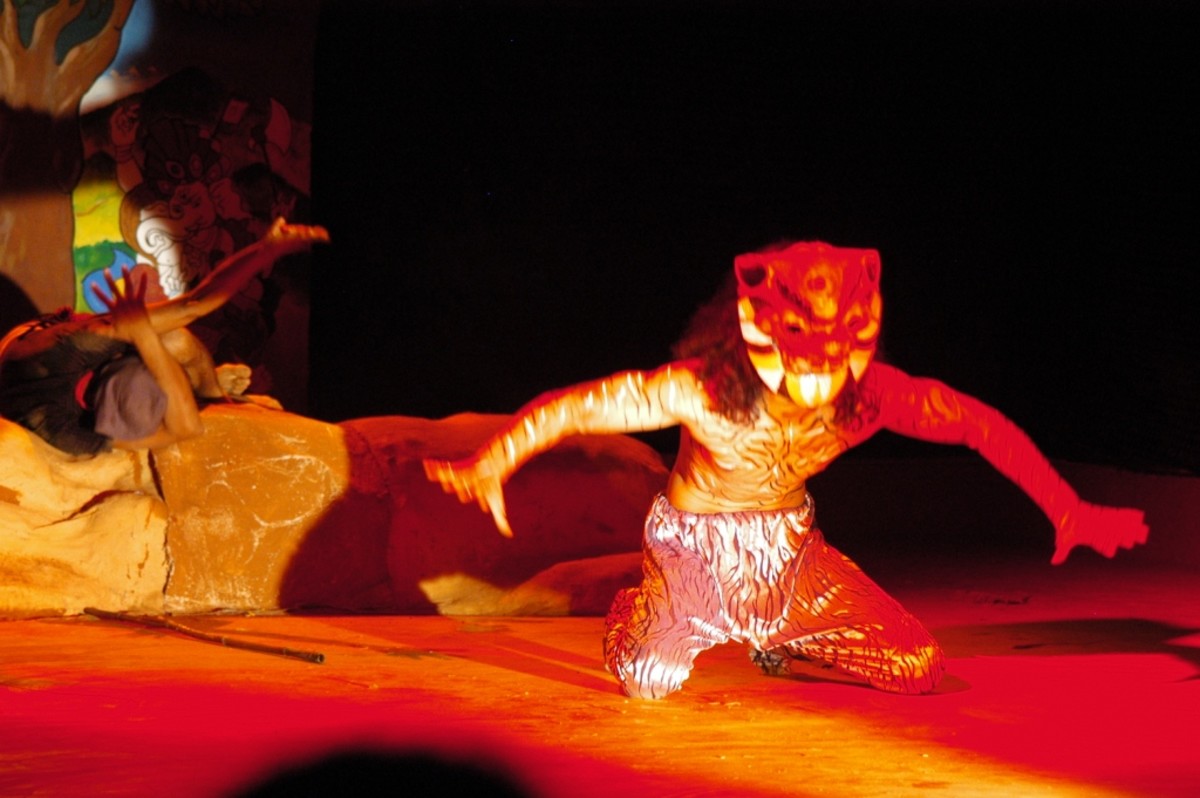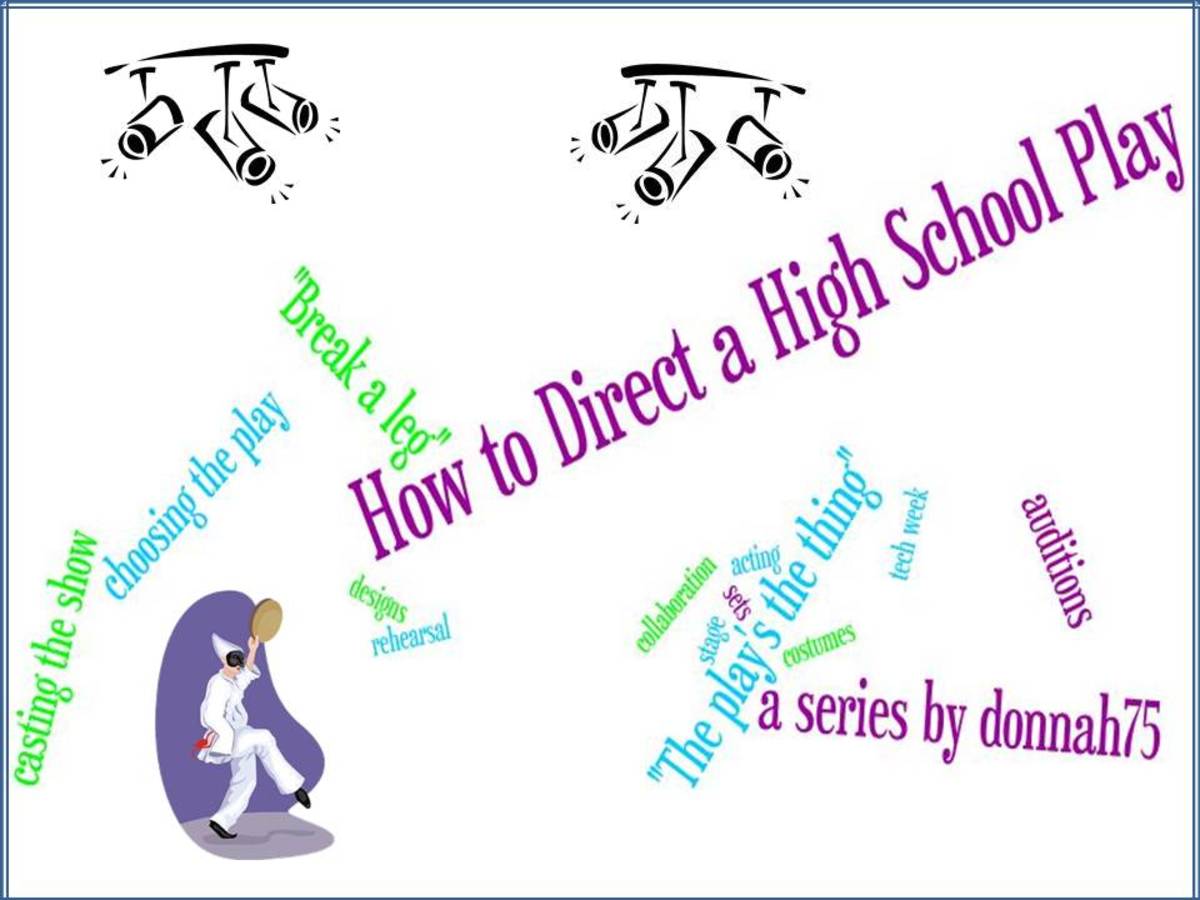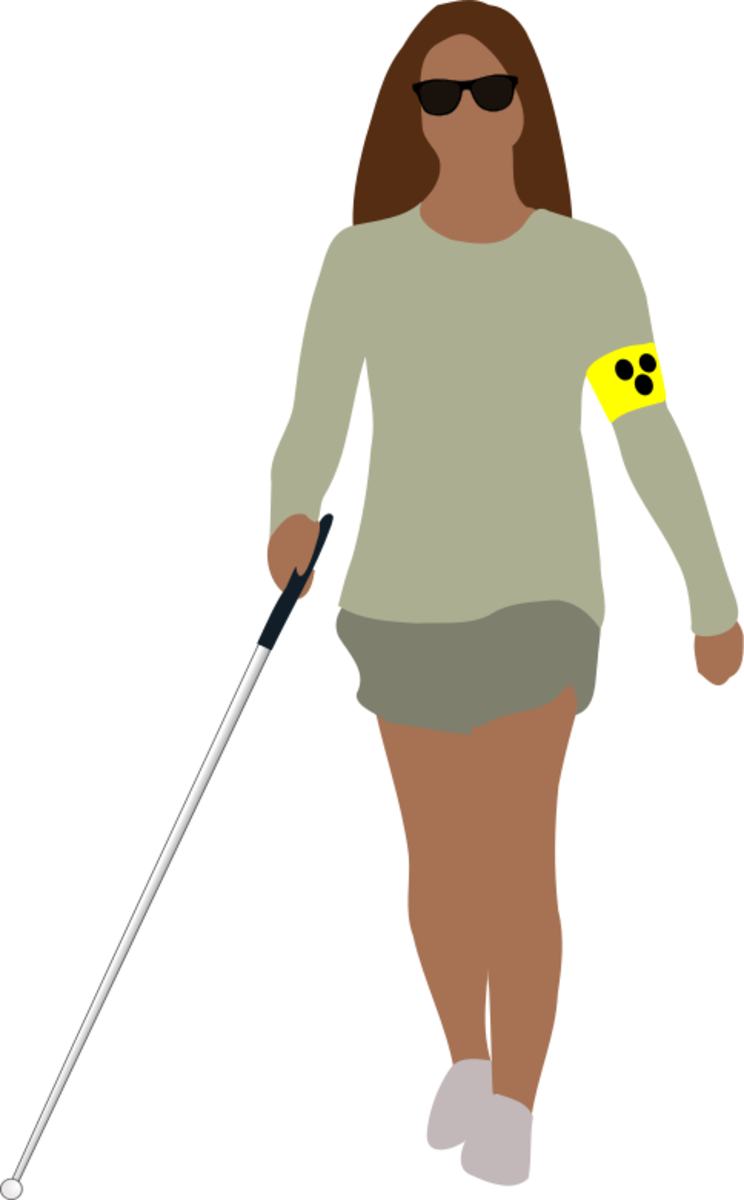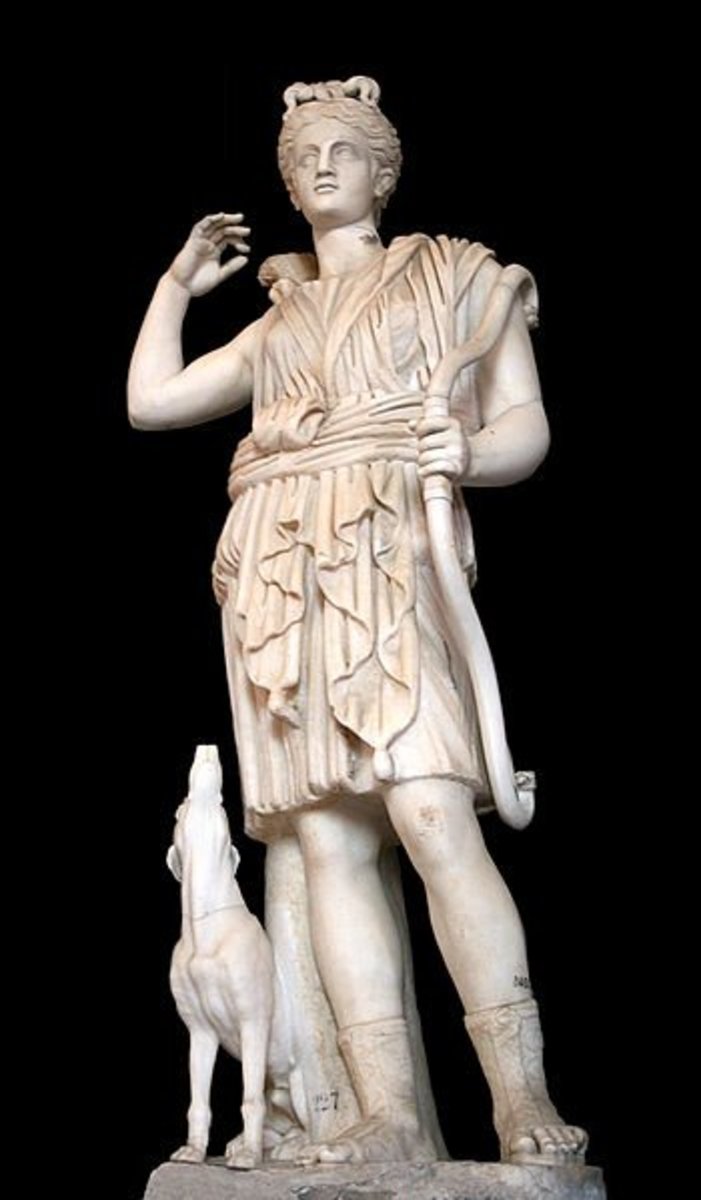"Accidental Death of an Anarchist" by Dario Fo, Italian playwright and Nobel Laureate 1997
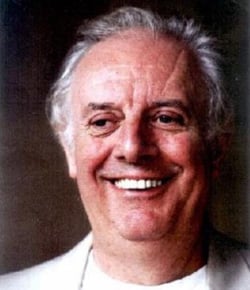
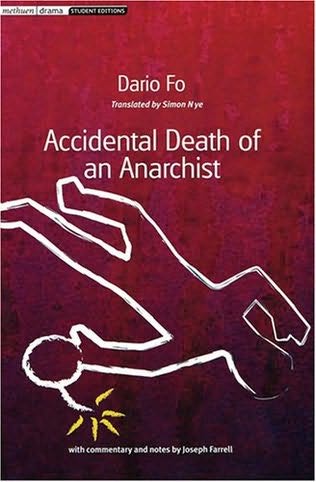
1980
Yes, we are going back in time so as to talk about the present. In the summer of 1980 I made my first trip to Europe. I was on a 65-day European tour with the University of Illinois at Urbana. A friend was supposed to accompany me, but she backed out days before the trip. This turned out to be the best thing that could have happened to me.
I forged on through the European tour alone and made the most amazing friends on that tour that I might not have made had I gone with a friend. We started in early June in Madrid, Spain and covered Europe from Sweden to Greece and her gorgeous islands and ended our tour in London, England in August.
By that time we were so glad to be in a country that spoke English, we could hardly believe it. And the English people were so friendly and welcoming. We were pinching ourselves because we were spending an entire week in London and what a great city it is.
Besides seeing the city sights, London Tower, Parliament, Big Ben, Harrods, Buckingham Palace, The Globe Theater, Westminster Abbey, St. Paul's, the British Museum etc. we had a week of evenings spent at the London Theater section, Covent Gardens.
I was in my glory. I believe we saw about eight plays that week and I found the English theater and stage to be just as good as, if not better, than Broadway. I cannot remember every single play I saw that week, now, but one play stood out as the best of all the rest.
Accidental Death of an Anarchist, by Dario Fo, an Italian playwright, was one I had never heard of before. But, in London, I heard that this play had been banned in the U.S. So of course, I had to see this play. And, being of Italian descent on my mother's side, I couldn't believe an Italian playwright had been banned by the U.S.
This was 1980, Jimmy Carter was President of the U.S. What do you mean this play was banned in the U.S.? I didn't know we had censorship in my country! What was going on here?
Well, this play is the most hilarious play I have ever seen and yes, it had been banned by President Jimmy Carter, himself. Wasn't Jimmy Carter a liberal? How could this be?
Well, not being familiar with Dario Fo or his plays, I didn't realize I was in for a satirical treat. Fo himself describes his play as "a grotesque farce about a tragic farce." And a farce it was. This was theater I had never seen or experienced before and I didn't know my 'paisan' was such a gifted, talented and creative playwright.
But, first, a little about Dario Fo.
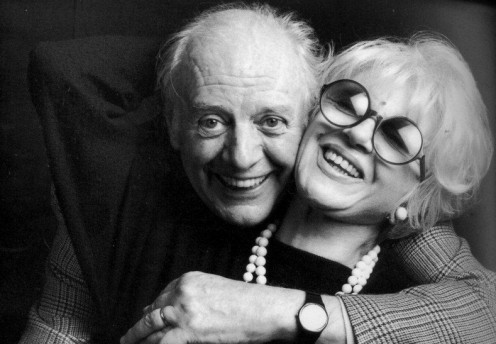
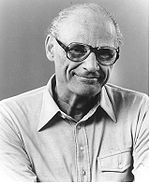
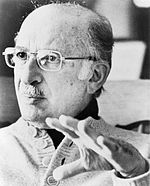
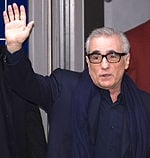
Have you ever seen a Dario Fo play?
Dario Fo 1926 -
Dario Fo is Italy's most widely performed playwright. He is also an Italian actor, comedian, singer, theater director and political campaigner.
He is also the most widely performed contemporary playwright today in world theater. Much of his dramatic work depends on improvisation and he also uses older forms of theater that are no longer used today.
For example, he uses the Italian, giullari, medieval strolling players, and the ancient Italian style of commedia dell' arte. And, Fo used these forms in his play, The Accidental Death of an Anarchist. This is where his use of farce, hyperbole, sarcasm. and lampooning come from.
Fo has incorporated these old forms of Italian theater into his present theater, which he is still writing today at age eighty-seven, and has been delighting audiences for more than five decades.
He was born in 1926 in the town of Legguino Sangiano, Lombardy, Italy on the eastern shore of Lago (Lake) Maggiore. He comes from a family of writers and actors. His mother was a writer, having written a memoir of her life in Italy, and his father was a station master for the Italian state railway. And, his father was also a sometimes actor for the socialist amateur local theaters.
Therefore, Fo grew up with leftist leanings influencing him. In 1940, he traveled to Milan to study at the Brera Academy. However, because of WWII, Fo joined Mussolini's Repubblica Sociale Italiana. This did not last long.
Fo later became active with his father and other family members in the anti-fascist Italian Resistance and helped them to smuggle refugees and Allied soldiers into Switzerland, the neutral European country during WWII. It is believed they also helped Jewish scientists to get into Switzerland disguised as Lombard peasants.
After the war, Fo returned to the Brera Academy and took up architectural studies at Politecnico di Milano. He started to write his thesis on Roman architecture but became disillusioned by the cheap impersonal work expected of architects at this time after the war. He left his studies right before taking his final examinations.
As a result, Fo suffered a nervous breakdown, but this was probably was a benefit to him because of the course his life would take. His doctor advised him to spend time doing what brought him joy. So, he began to paint and became involved in the piccoli teatri (small theater) movement in Italy.
Along with painting theater sets, he also began to act on the stage and began to present improvised monologues. Improvisation would become an important part of his stage plays.
He began writing and performing in Italian radio and television in the 1950s and his work has been described as "absolutely original, with an extraordinary humor, wit, and personification."
He began by writing plays with satire, lampoons, and parodies of Shakespeare's plays, fairy tales and Italian life.
He then moved on to working in the Italian state theater and then on to private theater companies.
In 1954, he married fellow Italian actor, Franca Rame, the daughter of a theatrical family and they have had a lifetime collaboration in the theater. The couple founded Campagnia Fo-Rame and produced, wrote and acted in plays.
in 1955, their son, Jacopo, was born and he has become a writer.
His plays and writings in the 1960s 70's and 80's were full of humorous and satirical criticisms of assassinations, corruption, organized crime, racism, Roman Catholic theology and war. The country of Italy was ripe in those years with all of these characteristics and run by a highly duplicitous Italian bureaucracy.
And, it is true, in 1980, U.S. authorities did block Fo and Rame from entering the U.S. to produced a play here in the U.S. They followed this with a ban of all of Fo's plays being performed in the U.S. That President Jimmy Carter went along with this has always surprised me and I was unaware that our country censored any written works of foreign artists.
I learned a lot that summer from my travels! Attending this play is the most subversive thing I have ever done concerning my country.
Joseph Papp, along with Arthur Miller, Bernard Malamud, Richard Foreman and Martin Scorsese all wrote letters to President Carter and the State Department objecting and protesting against the ban. Unfortunately, their letters and objections fell on deaf ears and blind eyes.
In 1983, the U.S. again banned Fo and Rame and their works from the U.S. This time they claimed Fo supported Italian terrorist groups. Since the couple had never even been suspected of terrorist leanings in Italy, Fo and Rame filed a lawsuit against the U.S. State Department for defamation and also to lift the ban of their works here in the U.S.
In the 1990s and 2000s Fo's writings have lampooned Forza Italia and its leader Silvio Berlusconi. And, believe me there is a ton of fodder on Berlusconi to laugh at.
As of the 2010s, his writings have criticized the European sovereign debt crisis.
His greatest achievement by far was winning the Nobel Prize in Literature in 1997. The Swedish Academy described Fo as "a writer who emulates the jesters of the Middle Ages in scourging authority and upholding the dignity of the downtrodden."
Many Italians and non-Italians were surprised when Fo won the Nobel Prize, but none more surprised than Dario Fo himself. He had always considered himself and actor first, and a writer second. He won the Nobel Prize in Literature in tandem with his wife, Franca Rame, as they had written some plays together.
Fo is the third Italian to win a Nobel Prize in Literature and he won it for his play writing.
Today, he owns and operates a theater company in Italy and continues to write plays.
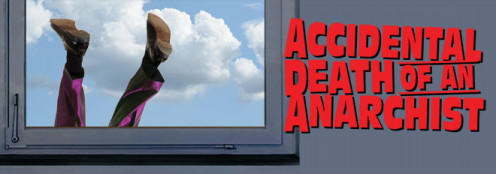
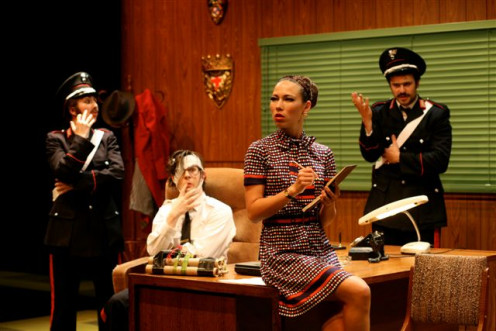
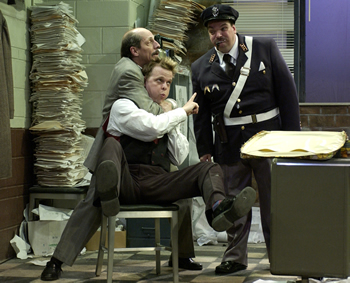
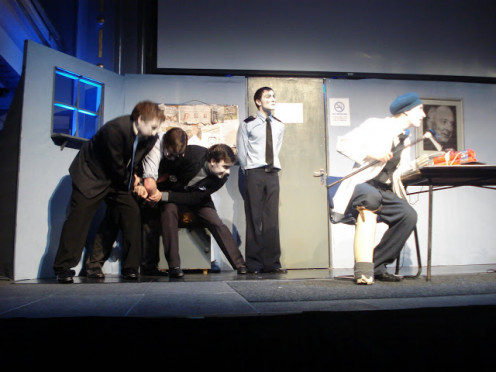
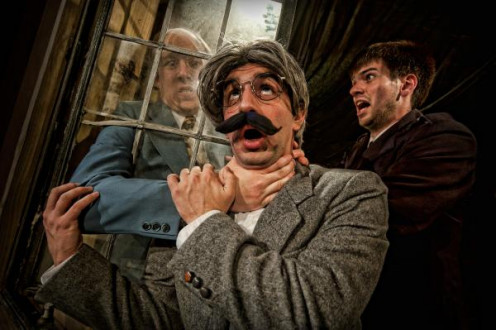
"Accidental Death of an Anarchist" by Dario Fo
Fast forward to the present, 2013, and we have his play being performed today with the same zeal, hilariousness, and satire as when I first saw it in 1980 in London. Today, it is performed in the U.S. and is being performed this month at the Yale Repertory Theater in New Haven, Connecticut
Accidental Fall of an Anarchist was written and first performed in Italy in December 1970. Fo wrote this play right after right-wing extremists and the Italian Secret Service carried out a "terrorist" attack on the Banca Nazionale dell' Agricoltura in Piazza Fontana in Milan in 1969.
The play is a farce based on the events of a real person, Guiseppe Pinelli, who fell or was thrown from the fourth flour window of a Milan police station in 1969. He was an Italian railway worker accused of being a terrorist and bombing the bank. After his tragic death Pinelli subsequently was cleared of the charge by the Italian police.
This play is considered a classic of the 20th century theater.
The events of the play are fictional and the play opens with Inspector Bertozzo interrogating 'The Maniac', one of the usual crazy suspects, the Italian picked up from time to time. They are on the first floor of the police station.
'The Maniac' keeps outsmarting the dim-witted Inspector and when Bertozzo leaves the room, 'The Maniac' intercepts a phone call from an Inspector Pissani. 'The Maniac learns that a judge is due at the police station to investigate the interrogation and death of the anarchist who fell from the fourth floor window.
Being the crazy man he is, 'The Maniac' decides too impersonate the judge and investigate the death, all which he does successfully. Did Guiseppi Pinelli jump from the window or was he pushed?
'The Maniac' has the Italian police re-enact the events on the fourth floor room and it also involves a female journalist who is probing the events for the news. 'The Maniac', of course, is trying to prove the police pushed or threw this unfortunate railway worker out the window.
The play ends with two alternative endings:
- Feletti (the journalist) leaving the four policemen on the fourth floor to be bombed
- Feletti uncuffs the men who in turn handcuff her to the window frame leaving her to die
'The Maniac' leaves the audience to decide which ending is best.
Of course, the farce comes in with the goofy characters running the Milan police station. It is something like the Keystone Kops. 'The Maniac' is a notorious liar, quick change con artist and certified maniac. In fact, he wears his commitment papers on his sleeve just to be ready when he is picked up by the Milan police.
However, only he can cut through the massive bureaucratic duplicity and reveal what happened to the suspected anarchist who died at the bottom of the fourth floor police station window.
He is the honorable one, the bastion of justice in an Italian world of common place deception and organized corruption. Fo, through this farce, pokes fun at the hypocrisy, avarice and cowardice of the Italian Establishment.
Fo writes his play in the commedia dell' arte spirit and hence all the characters are seen as 'clowns.'
I laughed uproariously at this play. Even being half Italian I was aware of what the Italian government and police were like. Yes, it poked fun at a serious situation. It brought levity to making a serious statement and look at the corruption inherent in the Italian government system.
So why was this play banned from being performed in the U.S.? Perhaps it hit home too much? Is the message to us that we are not to write satire, farce or lampoon against our own government or bureaucracy?
My guess also was that maybe President Carter and the State Department did not want to support Fo and his play because he was dissing the Italian government and they had to have a working relationship with Italy, being part of the G8 and all. Did our government bow to the pressure of the Italian government in this instance?
What is also interesting about Fo and his plays is he revises them to update them to current events so that when they are performed they are still relevant. He even allows the directors and producers to add or revise the plays to fit the moment.
And this is exactly what the Yale Repertory Theater has done. In Act II of Fo's play, 'The Maniac', played by Steve Epp, drops his character to deliver a monologue attacking W's presidential administration for its paralleling deception and injustices (WMD in Iraq and torturing terrorists) and it also includes a few gabs at the Obama administration just to even things out. No one is safe from Fo's sarcasm.
This is Dario Fo. He completely supports this being done with his plays as they are then kept current and remind us of the corruption in government. This also delights the liberal and left leaning American theater goers. Most American tea partiers don't attend Dario Fo plays, for this reason.
The monologues and improvisations are encouraged by Fo and he also encourages, "hyperbolic satire of governmental abuse and injustice," through the performances of his plays.
The Yale performance of the play is performing the same London performance that I saw in 1980. The director, Chris Bayes, has changed some of the British slang to American slang for American audiences and he has added music to give it an Italian street theater feel.
What ever the case, I am glad Dario Fo's plays are being performed here in the U.S. It is up to us, the theater goers, to be intelligent enough to understand the satire involved and not to become anarchists as a way to rid our government of corruption.
It is up to our government to trust in the intelligence of the American people not to become anarchists as a result of seeing this play. Censorship is never a good decision for a government to make.
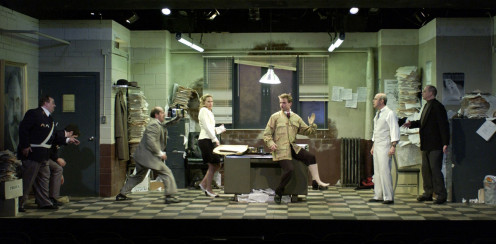
Yale Repertory Theatre 2013
© 2013 Suzette Walker
